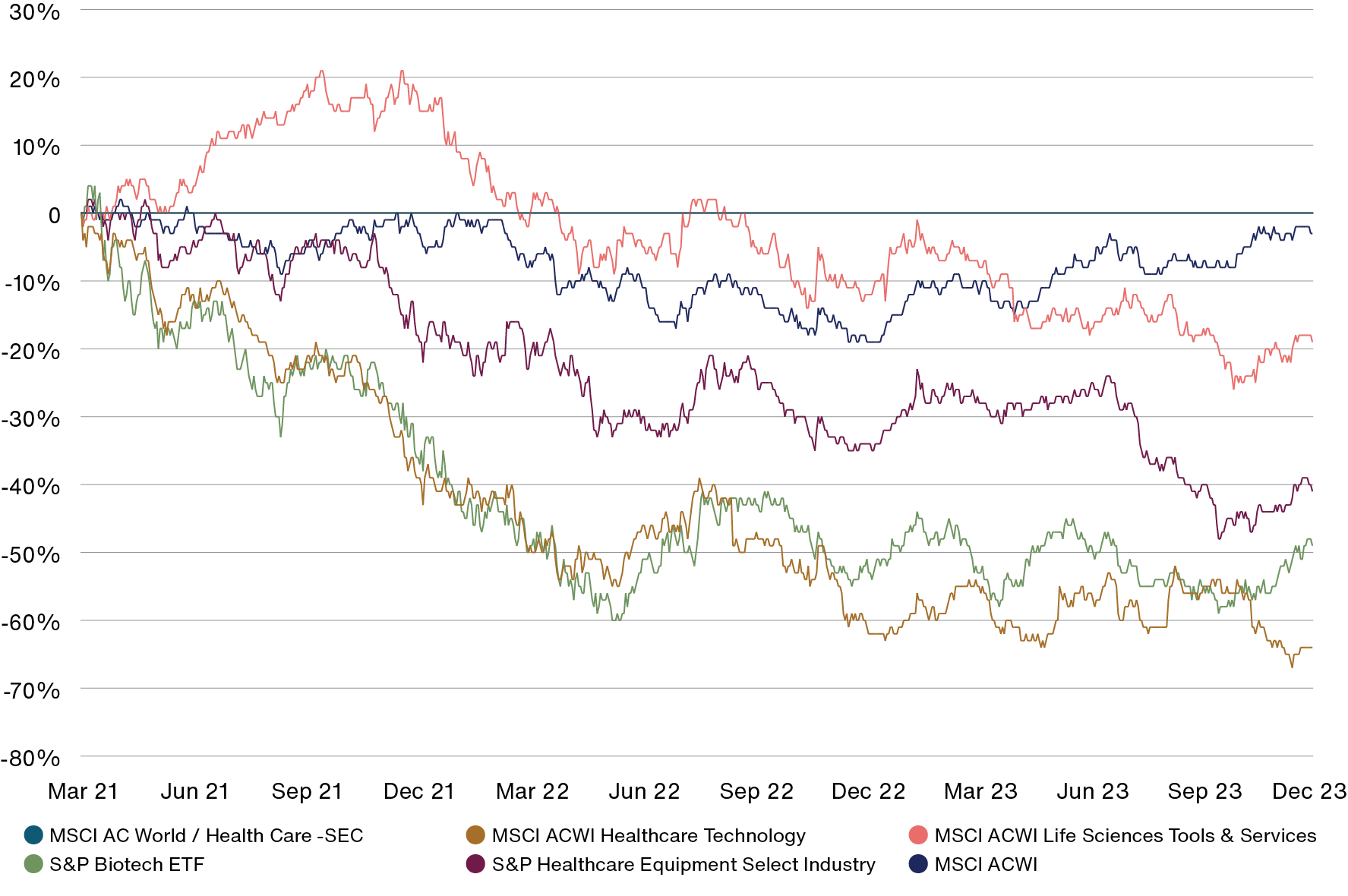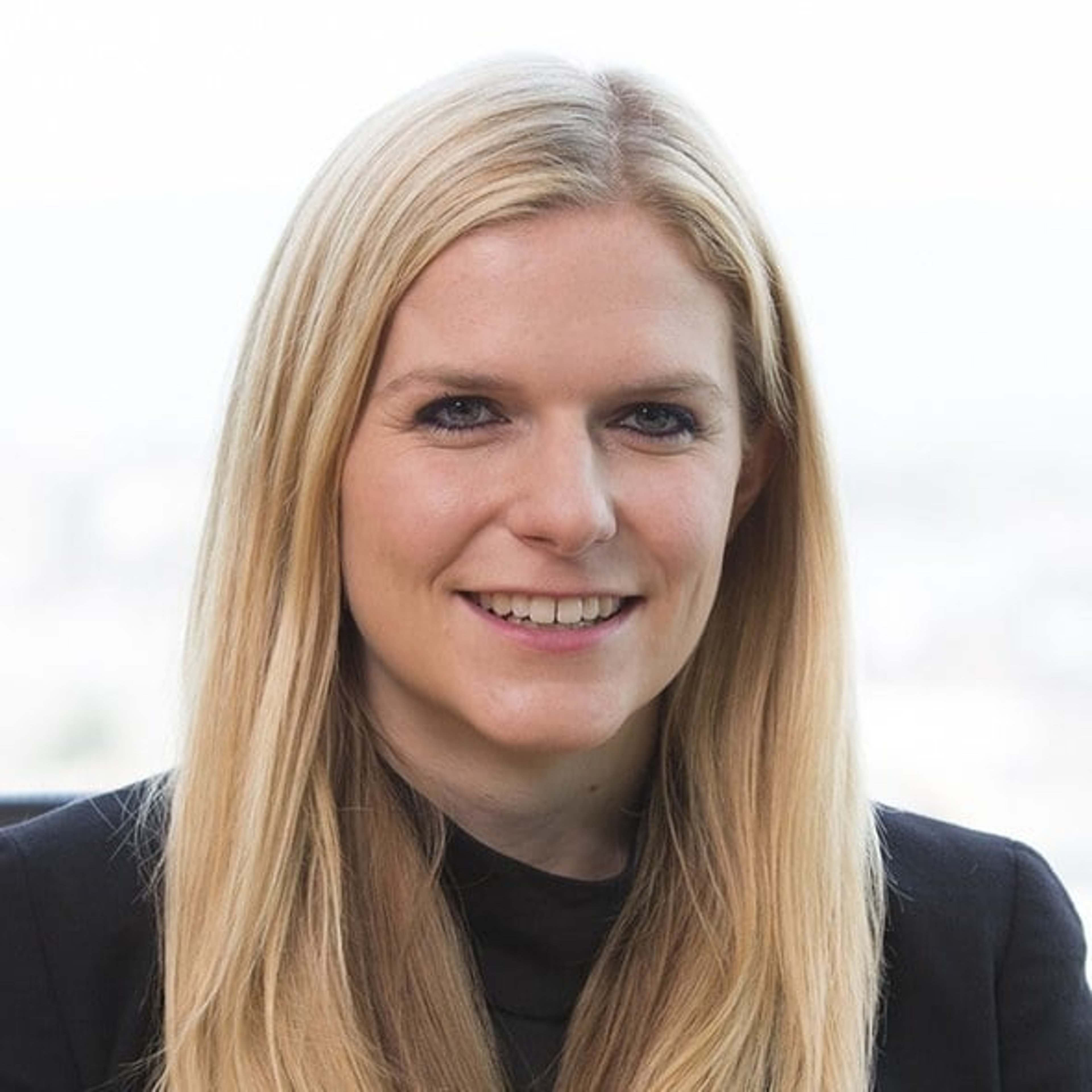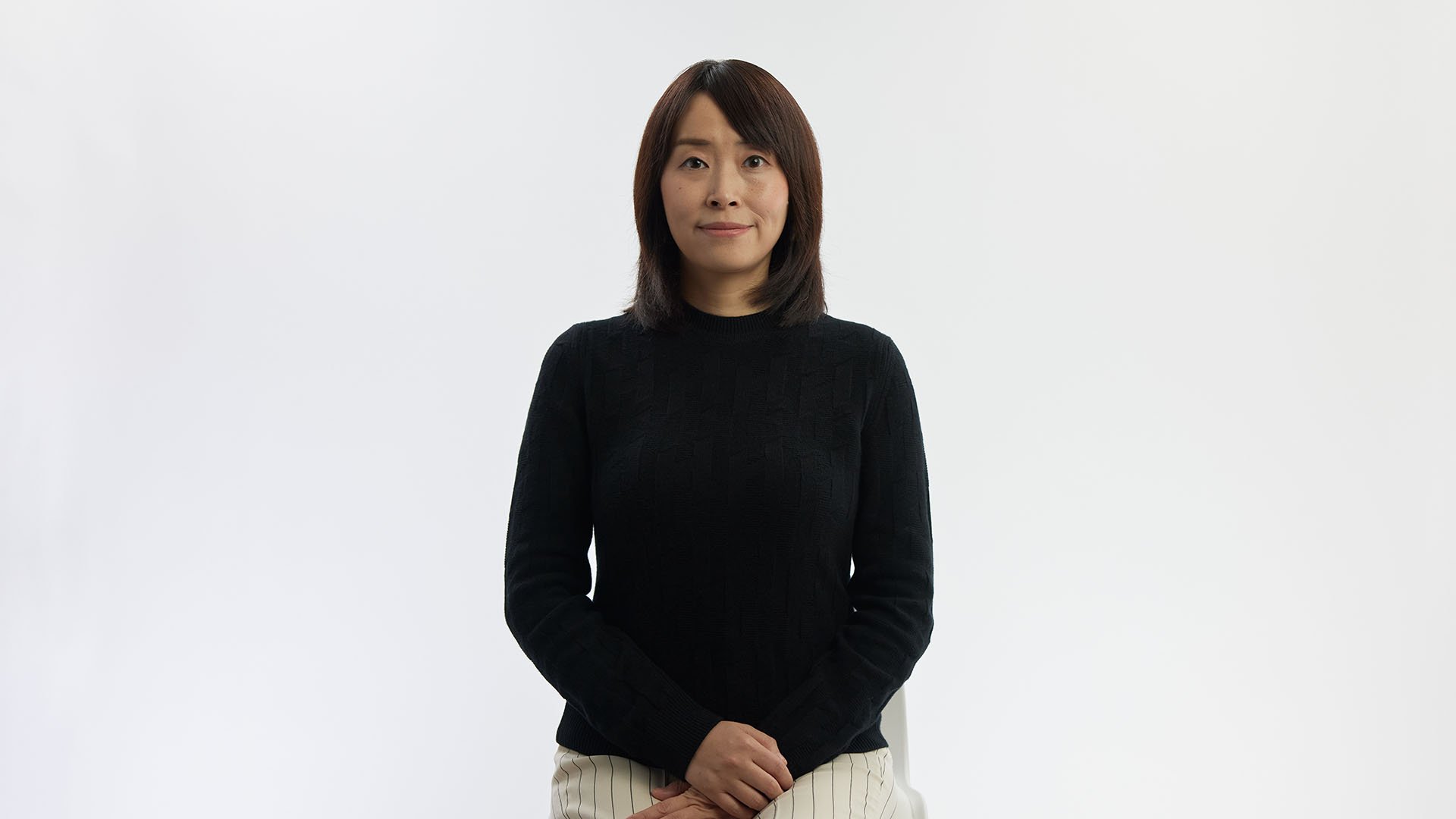
Your capital is at risk. Past performance is not a guide to future returns.
At Baillie Gifford, we have been investing in innovation for over one hundred years. This gives us an eye for identifying disruptive change as it occurs.
This was the case with healthcare companies in the early 2010s, when our investors increasingly saw technological advances converging with healthcare. This laid the foundations for a new era of medicine that had the potential to transform the future of health and create significant investment opportunities.
It wasn’t just our investors becoming excited by the rapidly evolving landscape. Walter Isaacson’s biography of Steve Jobs was published in 2011, days after the Apple co-founder’s death. In it, Isaacson quotes Jobs saying:
One of the very few silver linings about me getting sick is that [my son] Reed’s gotten to spend much time studying with some very good doctors. . . I think the biggest innovations of the twenty-first century will be the intersection of biology and technology. A new era is beginning, just like the digital one when I was his age.
Five years after the launch of our Health Innovation Strategy, the Health Innovation Team reflects on the remarkable progress within healthcare and some of our investments over this period.
We also share our enthusiasm for what is yet to come. We are still in the very early stages of a human health revolution, creating one of the most compelling investment opportunities for the coming decades.
Harnessing the ecosystem of health
Healthcare is complex, and to invest in it successfully, you must understand and navigate the challenges of science, technology and investing. This is why we created our Health Innovation Team, a dedicated team of investors who are deeply embedded within the healthcare ecosystem.
The team has forged an extensive network of academics, thought-leaders, companies and entrepreneurs, that have helped us expand our understanding of the rapidly evolving landscape. This enables us to marry our investment expertise with those who are at the vanguard of science, who are thinking in decades and truly shaping the future of healthcare.
Baillie Gifford’s reputation as long-term, supportive shareholders also provides a major advantage in a sector lacking in patient capital. We empower innovative companies to invest for the long term, thereby increasing their odds of success and resilience to setbacks. This is why management teams that want to build enduring exceptional businesses seek us to be their shareholders.
Today at Baillie Gifford, innovative healthcare companies are held across all our strategies and account for over 10 per cent of our assets under management, demonstrating the vast potential we see for investing in this area.
Scientific and technological breakthroughs reshape healthcare
We have experienced a powerful convergence of different fields of science and technologies, which is rapidly changing healthcare and its associated investment landscape. At the heart of this is the increasing affordability and, therefore, the accessibility of genomic sequencing, fundamentally changing our ability to understand the human body in a way that was never possible before.
Next-generation sequencing had enabled costs to fall dramatically by the time we launched the Health Innovation Strategy, from $3bn in 2000, to a little over $1,000 in 2018. Over the past five years, innovation efforts by companies such as Illumina continue to drive the costs lower to just $200 per genome today.
Furthermore, next-generation sequencing has drastically shortened the time required to sequence a genome, reducing it from over a decade at the turn of the millennium to a matter of hours today.
Such rapidly declining costs and time have continued to play a pivotal role in shaping the biological revolution, enabling sequencing to become more accessible and thereby vastly accelerating and deepening our understanding of human biology.
From finding genetic mutations and drug targets, designing blood tests for early detection of cancer or developing personalised treatments, this is the foundation for the new era of medicine that will unfold over the next decade and beyond.
Cost per human genome

Source: National Human Genome Research Institute at www.genome.gov
A progressive portfolio
Despite these incredible advances, healthcare systems remain in crisis due to ageing populations, increasing costs and outdated legacy technologies. Companies providing solutions to the crisis have incredible potential to deliver value for patients, healthcare systems and shareholders.
The Health Innovation portfolio today invests in companies that operate across the entire spectrum of health, from advancing our understanding of diseases, diagnostics, treatment, prevention and driving cost efficiencies.

Since the Health Innovation Strategy’s launch in 2018, we have seen tremendous progress in some underlying technologies that typify the great convergence. Our growing understanding of biology, increasing computing power and machine learning, among others, have all contributed to developing new treatment methods for many diseases.
As a reminder of just how far healthcare has come within that time, we summarise some areas that have taken impressive steps forward in the past five years.
Programmable medicines
We could not reflect on the past five years without mentioning Covid-19. It was a watershed moment for the healthcare industry, and around one-third of the Health Innovation portfolio played an important role in helping the world through the global pandemic.
The most striking example is Moderna. The pandemic radically transformed Moderna and validated its mRNA technology as a new powerful class of medicine. The company developed the Covid vaccine in just two days after receiving the genetic sequence of the virus, and nine months later, it was being distributed globally, ready to inject into peoples’ arms.
mRNA is an information molecule – it carries instructions for making proteins in our bodies. It can be programmed to deliver practically any protein, using our bodies as factories to produce the needed drugs.
The potential is virtually open-ended. Over the past two years, Moderna has almost tripled the number of clinical projects it is developing to over 40 programmes across infectious diseases, cancers, and rare diseases.

Alnylam Pharmaceuticals is an example of another company leveraging the programmable nature of RNA to develop another class of drugs called RNA interference that aims to ‘silence’ genes and stop the production of faulty proteins. Its platform is already proven, with five commercialised drugs on the market.
Its success rate in clinical trials from phase 1 to approval is over 60 per cent, far exceeding the industry average of 10 per cent. This illustrates the remarkable scalability of these programmable medicines that move drug discovery further away from trial and error.
Novel treatments for large unmet needs
The most substantial technological advances are being created in areas of large, unmet needs, including cancer, autoimmune diseases, and dementia.
One in two of us will develop cancer in our lifetimes, and one in six deaths globally are as a result of it. However, these bleak statistics hide the meaningful strides made in recent years. New types of treatments, such as immunotherapies, are changing the results for patients in ways that go beyond the usual surgeries, radiation and chemotherapy.
For example, Genmab’s antibody treatments have increased survival rates across blood cancers, including multiple myeloma (a type of bone cancer), and lung and cervical cancers, and it now has treatments for blood and solid tumour cancers progressing through trials
With 50 per cent of cancers diagnosed at an advanced stage when they are much harder to treat, perhaps the most significant potential is for early detection screening. Several companies are making advances in this area, including Exact Sciences.
It’s at-home Cologuard test can diagnose early-stage colorectal cancer and even precancerous polyps with high accuracy rates, which allows the removal of these polyps before they develop into cancers.
Cologuard is becoming the standard of colorectal cancer screening in the US with more than three million tests being prescribed annually and volumes growing at a mid-teen rate. Encouragingly, Exact Sciences is also joining the arms race with other liquid biopsy companies to develop tests that can detect multiple cancers and monitor cancer recurrence from a simple blood sample. These tests could transform the outlook for patients and reduce the need for costly late-stage cancer treatments.
While the cancer field continues to attract much investor attention and generate exciting innovations, capital is increasingly being channelled into autoimmune diseases, whose symptoms are debilitating and affect one in ten individuals worldwide.
Unlocking access to the brain, Denali is leveraging advances in genetics, pathology and cell biology to identify pathways that trigger neurodegeneration.
Based on molecular genetics and a better understanding of disease biology, companies are developing more targeted therapies that aim to treat the root causes of various autoimmune conditions with the potential for cures now emerging.
Argenx, for example, has uncovered novel disease pathways and is developing antibodies for several autoimmune indications in close collaboration with academics. Since our initial investment in the company, it has successfully commercialised its first drug Vyvgart which generated $400m in its first year of launch, and expanded the pipeline substantially to multiple autoimmune diseases.
Elsewhere, as the global population ages, neurodegenerative diseases such as dementia are becoming more common, prematurely stealing the individual’s quality of life. Yet this area has been the graveyard of drug discovery in the past. This is because we previously had a poor understanding of the underlying biology of the diseases and drugs have been unable to penetrate the blood-brain barrier (BBB), the membrane that protects our brains from toxins.
Denali Therapeutics is at an early stage, but it has pioneered a transport mechanism that can take a range of large-molecule drugs across the blood-brain barrier. In addition to unlocking access to the brain, Denali is leveraging advances in genetics, pathology and cell biology to identify pathways that trigger neurodegeneration. It currently has seven drugs in clinical trials focused on defeating neurodegenerative diseases such as Alzheimer’s and Parkinson’s.
Computing power makes drug discovery more predictable
The exponential improvements in computing power and the increased data generated and interrogated by it are particularly pertinent for healthcare, where large numbers abound. Even without considering how our lifestyle choices and living conditions affect our health, our bodies alone comprise three billion DNA base pairs, over 20,000 proteins and 37 trillion cells.
Exploring human health is a perfect use case for artificial intelligence (AI), and drug discovery is just one such area where we are seeing sizable strides forward thanks to AI.

Recursion, Exscientia and Relay are among those pioneering the use of AI to find new drugs more quickly, economically and with a higher chance of success. For example, last year, Recursion announced a collaboration with NVIDIA, a leader in artificial intelligence. NVIDIA’s investment in Recursion will help it accelerate the development of its biological and chemical AI models.
Already, we are seeing some astounding progress. Within one week of the announced collaboration, Recursion had digitally evaluated more than 2.8 quadrillion (or 2,800,000,000,000,000) small molecule-target pairs, a process which it estimates would have taken 100,000 years to complete with traditional, physics-based methods!
Personalised, preventative medicine
Cheaper and more effective tools are expanding our understanding and diagnosis of disease, allowing us to treat the causes, not just the disease symptoms. Sensors and technology are shifting healthcare delivery from hospital visits to remote monitoring and proactive treatment when needed, stripping out costs and improving our health.
For example, Dexcom’s devices for the continuous monitoring of glucose can prompt doctors to adjust treatment without waiting for the next routine appointment or an emergency. The potential cost savings of this are considerable.
Diabetes is the most expensive disease globally, and preventable complications account for two-thirds of the total cost. There is also increasing evidence that Dexcom’s sensors are helping to increase patient compliance with the new generation of GLP-1 drugs (that are used to treat obesity) and that usage can be complementary to usage of such drugs. This notably expands the addressable market of Dexcom beyond diabetic patients.
Ultimately, these technologies are changing the healthcare services that we receive. They are tailoring care to each individual and making healthcare more effective.
Diabetes is the most expensive disease globally, and preventable complications account for two-thirds of the total cost

A compelling opportunity for long-term investors
In healthcare, perhaps more than any other industry, progress takes time. As exciting as the developments we’ve shared are and how much we all long to improve human health and eradicate disease, it would be wrong to expect them to materialise instantly.
These companies need thoughtful, patient and supportive shareholders to be able to encourage and protect their long-term visions and ambitions. This means prioritising the company’s long-term interests over short-term financial market expectations and embracing the reality that success never comes in a straight line.
Innovation is on sale
Inevitably, there will be periods of market doubt and volatility, such as we are seeing now. This is especially so as the companies we are investing in are operating at the cutting edge of science, the capital intensity of the industry and the long lead times needed to bring new products to market.
Indeed, the past two years have seen some of the most challenging performance in relative terms for healthcare in nearly 20 years, as macroeconomic headwinds, budget pressures, post-Covid adjustments and geopolitical tensions have weighed on innovative healthcare companies.
However, against this, we are seeing extreme valuation disconnects, where share prices do not appear to reflect the companies’ growth prospects. This creates exciting opportunities for long-term investors to capitalise on. Our portfolio is trading at the lowest price-to-sales and near the lowest price-to-earnings ratios since inception in 2018, both of which may suggest the companies within the portfolio are undervalued.
This is despite our holdings’ continued strong operational progress, growing revenues and earnings at a rate that is at least double that of the index, while still investing for their futures, increasing their chances of long-term success.
Relative performance of innovative industries versus the MSCI ACWI Healthcare Index

Source: FactSet, MSCI, S&P, As as 31 December 2023
Health Innovation: the revolution is here
We launched Health Innovation five years ago, based on the hypothesis that healthcare was on the cusp of profound change. With technologies continuing to converge at pace and create innovative treatment methods, the future of healthcare looks even more exciting to us than it did when we launched the strategy in 2018.
Cheaper and more effective tools are expanding our understanding and diagnosis of disease, allowing us to treat the causes, not just the symptoms. A new breed of companies is transforming the pace and chances of success in developing drugs. Sensors and technology are shifting healthcare delivery from hospital visits to remote monitoring and proactive treatment when needed – stripping out costs and improving our health.
The creative convergence of science and new technologies powers these changes. This creates a significant opportunity for innovative companies to redefine healthcare in the coming decades. We are at the start of a revolution in healthcare that has the potential to unlock tremendous value for patients and investors.
Health Innovation
Annual past performance to 31 December each year (net%)
| 2019 | 2020 | 2021 | 2022 | 2023 | |
|
Health Innovation Composite |
28.0 |
81.4 |
-7.8 |
-32.7 |
-12.6 |
|
MSCI ACWI |
27.3 |
16.8 |
19.0 |
-18.0 |
22.8 |
Annualised returns to 31 December 2023 (net%)
| 1 year | 5 years | 10 years | Since Inception | |
|
Health Innovation Composite* |
-12.6 |
4.7 |
N/A |
3.9 |
|
MSCI ACWI |
22.8 |
12.3 |
N/A |
10.6 |
*Inception date: 31 October 2018.
Source: Baillie Gifford & Co and MSCI. USD. Returns have been calculated by reducing the gross return by the highest annual management fee for the composite.
Past performance is not a guide to future returns.
Legal notice
MSCI makes no express or implied warranties or representations and shall have no liability whatsoever with respect to any MSCI data contained herein. The MSCI data may not be further redistributed or used as a basis for other indexes or any securities or financial products. This report is not approved, endorsed, reviewed or produced by MSCI. None of the MSCI data is intended to constitute investment advice or a recommendation to make (or refrain from making) any kind of investment decision and may not be relied on as such.
Risk factors
The views expressed should not be considered as advice or a recommendation to buy, sell or hold a particular investment. They reflect opinion and should not be taken as statements of fact nor should any reliance be placed on them when making investment decisions.
This communication was produced and approved in March 2024 and has not been updated subsequently. It represents views held at the time of writing and may not reflect current thinking.
Potential for Profit and Loss
All investment strategies have the potential for profit and loss, your or your clients’ capital may be at risk. Past performance is not a guide to future returns.
This communication contains information on investments which does not constitute independent research. Accordingly, it is not subject to the protections afforded to independent research, but is classified as advertising under Art 68 of the Financial Services Act (‘FinSA’) and Baillie Gifford and its staff may have dealt in the investments concerned.
All information is sourced from Baillie Gifford & Co and is current unless otherwise stated.
The images used in this communication are for illustrative purposes only.
Important Information
Baillie Gifford & Co and Baillie Gifford & Co Limited are authorised and regulated by the Financial Conduct Authority (FCA). Baillie Gifford & Co Limited is an Authorised Corporate Director of OEICs.
Baillie Gifford Overseas Limited provides investment management and advisory services to non-UK Professional/Institutional clients only. Baillie Gifford Overseas Limited is wholly owned by Baillie Gifford & Co. Baillie Gifford & Co and Baillie Gifford Overseas Limited are authorised and regulated by the FCA in the UK.
Persons resident or domiciled outside the UK should consult with their professional advisers as to whether they require any governmental or other consents in order to enable them to invest, and with their tax advisers for advice relevant to their own particular circumstances.
Financial Intermediaries
This communication is suitable for use of financial intermediaries. Financial intermediaries are solely responsible for any further distribution and Baillie Gifford takes no responsibility for the reliance on this document by any other person who did not receive this document directly from Baillie Gifford.
Europe
Baillie Gifford Investment Management (Europe) Limited provides investment management and advisory services to European (excluding UK) clients. It was incorporated in Ireland in May 2018. Baillie Gifford Investment Management (Europe) Limited is authorised by the Central Bank of Ireland as an AIFM under the AIFM Regulations and as a UCITS management company under the UCITS Regulation. Baillie Gifford Investment Management (Europe) Limited is also authorised in accordance with Regulation 7 of the AIFM Regulations, to provide management of portfolios of investments, including Individual Portfolio Management (‘IPM’) and Non-Core Services. Baillie Gifford Investment Management (Europe) Limited has been appointed as UCITS management company to the following UCITS umbrella company; Baillie Gifford Worldwide Funds plc. Through passporting it has established Baillie Gifford Investment Management (Europe) Limited (Frankfurt Branch) to market its investment management and advisory services and distribute Baillie Gifford Worldwide Funds plc in Germany. Similarly, it has established Baillie Gifford Investment Management (Europe) Limited (Amsterdam Branch) to market its investment management and advisory services and distribute Baillie Gifford Worldwide Funds plc in The Netherlands. Baillie Gifford Investment Management (Europe) Limited also has a representative office in Zurich, Switzerland pursuant to Art. 58 of the Federal Act on Financial Institutions (‘FinIA’). The representative office is authorised by the Swiss Financial Market Supervisory Authority (FINMA). The representative office does not constitute a branch and therefore does not have authority to commit Baillie Gifford Investment Management (Europe) Limited. Baillie Gifford Investment Management (Europe) Limited is a wholly owned subsidiary of Baillie Gifford Overseas Limited, which is wholly owned by Baillie Gifford & Co. Baillie Gifford Overseas Limited and Baillie Gifford & Co are authorised and regulated in the UK by the Financial Conduct Authority.
Hong Kong
Baillie Gifford Asia (Hong Kong) Limited 柏基亞洲(香港)有限公司 is wholly owned by Baillie Gifford Overseas Limited and holds a Type 1 and a Type 2 license from the Securities & Futures Commission of Hong Kong to market and distribute Baillie Gifford’s range of collective investment schemes to professional investors in Hong Kong. Baillie Gifford Asia (Hong Kong) Limited 柏基亞洲(香港)有限公司 can be contacted at Suites 2713-2715, Two International Finance Centre, 8 Finance Street, Central, Hong Kong. Telephone +852 3756 5700.
South Korea
Baillie Gifford Overseas Limited is licensed with the Financial Services Commission in South Korea as a cross border Discretionary Investment Manager and Non-discretionary Investment Adviser.
Japan
Mitsubishi UFJ Baillie Gifford Asset Management Limited (‘MUBGAM’) is a joint venture company between Mitsubishi UFJ Trust & Banking Corporation and Baillie Gifford Overseas Limited. MUBGAM is authorised and regulated by the Financial Conduct Authority.
Australia
Baillie Gifford Overseas Limited (ARBN 118 567 178) is registered as a foreign company under the Corporations Act 2001 (Cth) and holds Foreign Australian Financial Services Licence
No 528911. This material is provided to you on the basis that you are a ‘wholesale client’ within the meaning of section 761G of the Corporations Act 2001 (Cth) (‘Corporations Act’). Please advise Baillie Gifford Overseas Limited immediately if you are not a wholesale client. In no circumstances may this material be made available to a ‘retail client’ within the meaning of section 761G of the Corporations Act.
This material contains general information only. It does not take into account any person’s objectives, financial situation or needs.
South Africa
Baillie Gifford Overseas Limited is registered as a Foreign Financial Services Provider with the Financial Sector Conduct Authority in South Africa.
North America
Baillie Gifford International LLC is wholly owned by Baillie Gifford Overseas Limited; it was formed in Delaware in 2005 and is registered with the SEC. It is the legal entity through which Baillie Gifford Overseas Limited provides client service and marketing functions in North America. Baillie Gifford Overseas Limited is registered with the SEC in the United States of America.
The Manager is not resident in Canada, its head office and principal place of business is in Edinburgh, Scotland. Baillie Gifford Overseas Limited is regulated in Canada as a portfolio manager and exempt market dealer with the Ontario Securities Commission (‘OSC’). Its portfolio manager licence is currently passported into Alberta, Quebec, Saskatchewan, Manitoba and Newfoundland & Labrador whereas the exempt market dealer licence is passported across all Canadian provinces and territories. Baillie Gifford International LLC is regulated by the OSC as an exempt market and its licence is passported across all Canadian provinces and territories. Baillie Gifford Investment Management (Europe) Limited (‘BGE’) relies on the International Investment Fund Manager Exemption in the provinces of Ontario and Quebec.
Israel
Baillie Gifford Overseas Limited is not licensed under Israel’s Regulation of Investment Advising, Investment Marketing and Portfolio Management Law, 5755-1995 (the Advice Law) and does not carry insurance pursuant to the Advice Law. This material is only intended for those categories of Israeli residents who are qualified clients listed on the First Addendum to the Advice Law.
96250 10045881






